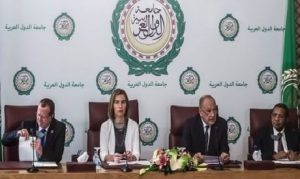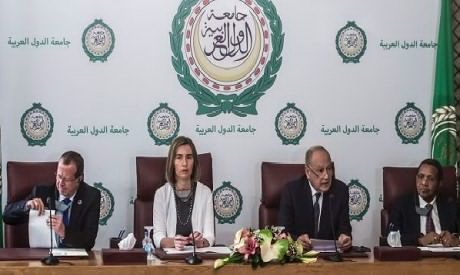By Jamie Prentis.

Tunis, 18 March 2017:
Kobler believes most Libyans still back LPA
UN envoy Martin Kobler claimed today that 70 percent of Libyans support the Skhirat agreement. He also once again warned that the ban on supplying weapons the Libya would remain in place until its security forces were unified.
This policy has particularly enraged armed forces commander-in-chief Khalifa Hafter, who has questioned why the international community refuses to arm his Libyan National Army which he says is actively engaged in fighting terrorism.
Kobler also congratulated the Presidency Council (PC) for negotiating this week’s ceasefire in Tripoli, despite the fact the deal does not include some of the key militias.
Kobler was speaking at a quadrilateral meeting, called by the Arab League at its Cairo headquarters. Besides UNSMIL, the Arab League secretary-general Ahmed Aboul Gheit hosted EU foreign affairs chief Federica Mogherini and African Union special representative to Libya Tanzania’s Jakaya Kikwete.
After the summit Kobler said all sides believed Libya needed a “united army with a clear chain of command, reporting to a superior commander under civil authority.”
The quartet, he said, also support the Libyan Dialogue that would bring together House of Representatives and State Council members to agree on “limited amendments to the Libyan Political Agreement (LPA).”
The meeting also threw its weight behind the LPA and the PC’s Government of National Accord. Nonetheless, the quartet urged the PC to try and calm the fighting in Tripoli
At a press conference later the group condemned the Oil Crescent fighting which had threatened Libya’s most valuable asset. A single oil company was essential to reap economic benefits of oil production.
Yesterday, Mogherini predicted the meeting’s focus would be on coordinating support for regional and UN efforts to help Libya’s political transition.
The EU has majored on stemming the migrant tide from Libya. Last month all 28 EU states agreed a €200-million plan to combat migrant flows, with the key emphasis on effective EU border control.
However, Mogherini had previously stressed that the issue of migrants forms only part of the EU’s broader focus seeking to improve Libyan governance and security.








